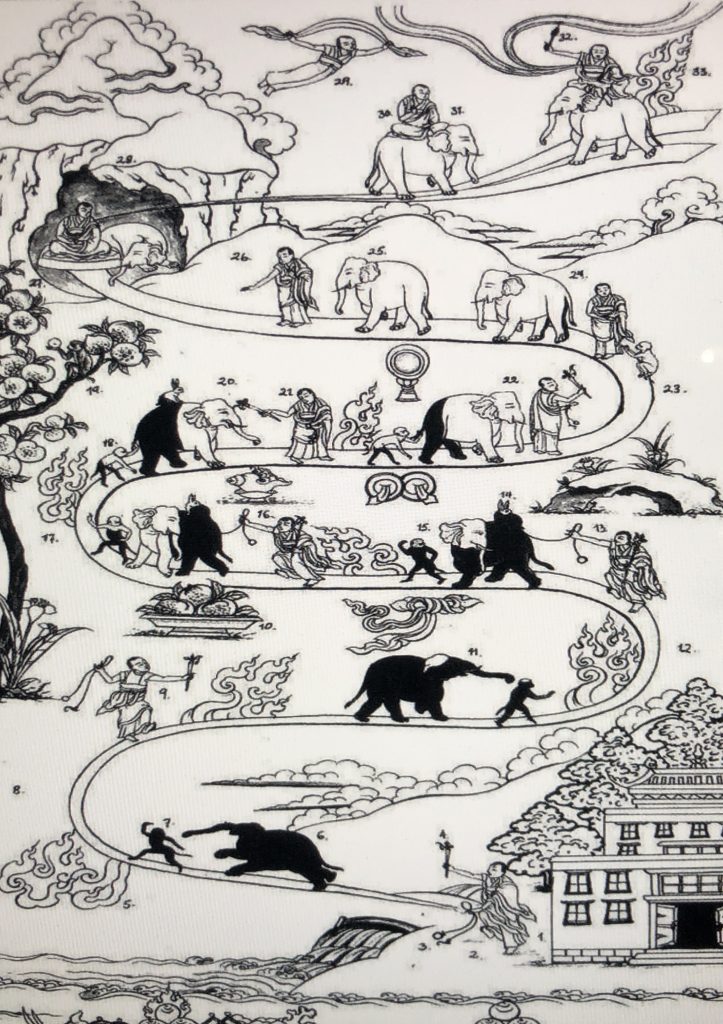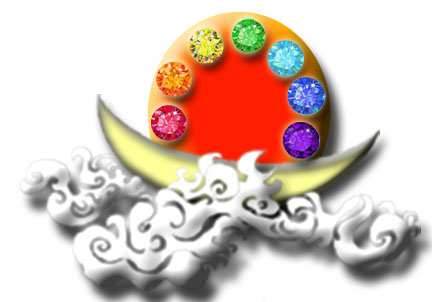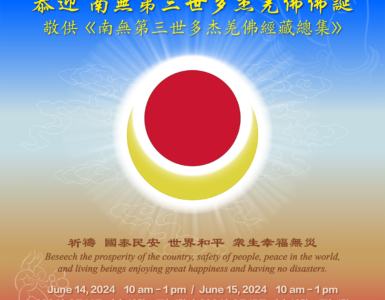
This image illustrates the nine stages of mental abiding that happen as one progresses in one’s meditation by showing a wild black elephant symbolizing our wild monkey-mind we start with who becomes purified as we progress until it is subdued in the cave as we achieve calm abiding. The chart below provides descriptions of each of the nine stages of sthiti or mental abiding. The obstacles and their antidotes are found in another article in this blog.
This chart primarily summarizes a discourse given by Dorje PaMu that was printed in Chinese in The Dharma of Concentration, Contemplation, and Visualization Essential for Enlightenment. She refers to these principles as the step-by-step approach to acquire the essence of concentration and contemplation, i.e., the method of achieving concentration and contemplation. She says, “Concentration means imperturbability or that which cannot be disturbed; contemplation means to cultivate correct knowledge and correct mind; essence is the indispensable part, the essence of the essential. . . All who have successfully attained enlightenment or have become Buddhas and Bodhisattvas have practiced concentration and contemplation in order to realize truth and achieve Buddhahood. . . Therefore, concentration is the basis for realization and contemplation is the foundation for acquiring the correct knowledge and mind necessary for enlightenment.” Her work uses Je Tsongkapa’s A Brief Treatise on The Stages of Enlightenment and other sources. PaMu’s book has not been released in English.





Add comment